
How Shakespeare Put Politics on the Stage:
Power and Succession in the History Plays
by Peter Lake (Yale University Press)
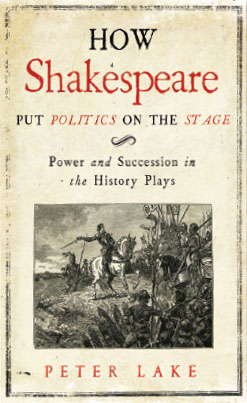
It is a truth often overlooked in the literary criticism of the last generation, but all great literature is a product of its times. Universal themes play over and over in varying social, intellectual and historic contexts. In the London of Elizabeth I and the dynastic succession of the Stuart King James I, politics was pervasive. Questions of succession and royal rule, natural law and church and state dominated court life, public discourse and the English Church.
The popular playwrights of the era, dependent upon patronage and the public alike, understandably returned to those popular motifs—and walked the fine line demanded by the winds of the moment. As none was better at his craft, no Elizabethan dramatist played politics within his plays more skillfully than William Shakespeare. The low hanging fruit to illustrate is Richard III, written in 1592 and completing Shakespeare’s Wars of the Roses tetralogy begun with Henry VI, Parts 1–3. Painting Richard III as a villainous poison in the body politic was only politic—with the granddaughter of the challenger who took King Richard’s life in battle seated on the throne just a few miles from where the play was being presented.
Shakespeare’s interest and incorporation of political ideas and riffs into his history plays is a familiar motif to Shakespeare students. Peter Lake’s exposition of this broad theme, however, is the most detailed, insightful study of the topic yet. His masterful, and lengthy, unpacking of the history plays and tragedies takes some work and requires general familiarity with the plays (and history), but it invites readers to a renewed appreciation for Shakespeare’s work—and the intricacies of the dramatist’s mind. Shakespeare would have made a dangerous politician.
—Dana Huntley
How Shakespeare Put Politics on the Stage: Power and Succession in the History Plays goes on sale January 24.
The Chilbury Ladies' Choir: A Novel
by Jennifer Ryan (Crown)
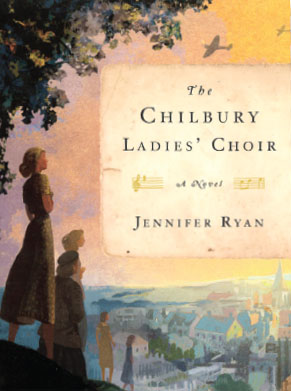
Sisterhood, in all its meanings, abounds in The Chilbury Ladies’ Choir, Jennifer Ryan’s debut novel of life, love and beautiful music in war-torn 1940s England. Inspired both by her grandmother’s tales of World War II England and the national Mass Observation project that recorded the thoughts of real Britons from its inception in 1937, Ryan balances joyful harmonies amid a bloody backdrop of war and survival. After men both young and old leave the Kentish village of Chilbury to fight, the vicar plans to shut down the choir—until music professor Primrose Trent emboldens the town’s women to come together and sing. “I found my voice becoming louder, in defiance of this war,” notes Mrs. Tilling, one of the five narrators we meet in the book, each revealed to us, in epistolary fashion, through letters and journals. The others include 13-year-old Kitty Winthrop; her beautiful 18-year-old sister, Venetia; town midwife Edwina Paltry; Silvie, a young Jewish refugee from Czechoslovakia; and Mrs. Tilling, whose worldand war-weary journal entries propel the story forward while providing the keenest (and most frightening) observations. Ryan’s storytelling is somewhat matter-of-fact in the early pages, belying the rousing rewards that come as we get to know these women. The TV rights to the book have already been sold to the same production company that brought us Downton Abbey, so expect these ladies to keep making their voices heard for quite some time.
—John Hogan
The Chilbury Ladies’ Choir goes on sale February 14.
Jonathan Swift: The Reluctant Rebel
by John Stubbs (W. W. Norton & Company)
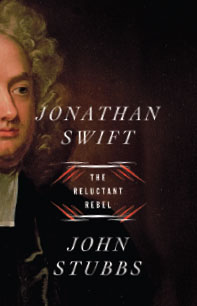
On the heels of his award-winning John Donne: The Reformed Soul, Stubbs tackles an even more complicated man, tracking Swift’s life and contradictions for over 700 pages. Dense and well researched, it isn’t the type of nonfiction book you’ll say “reads like a novel.” But it captures the man so thoroughly, readers will wish he were here today. He no doubt would compose an acidic, savagely humorous proposal to reveal the mean truth and absurdity of our politics—which, sadly, currently seem beyond satire on either side of the Atlantic.
Jonathan Swift: The Reluctant Rebel goes on sale February 28.
The Butcher’s Hook
by Janet Ellis (Pegasus Books)
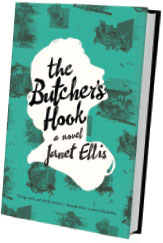
With this shocking and strong first novel, the author, an actress known to Brits for her work on the show Blue Peter, shows she understands how to write from the wants and needs of characters. And though this dark, gothic novel takes place the better part of a century before Victorian-era Oliver Twist or Great Expectations, there’s something a little Dickensian about Ellis’ writing: the sharp patter, entertaining dialects and gritty, grimy, visceral descriptions that make the texture and smells of Georgian London feel entirely present.
The Butcher’s Hook goes on sale January 1.
The Dark Flood Rises: A Novel
by Margaret Drabble (Farrar, Straus and Giroux)
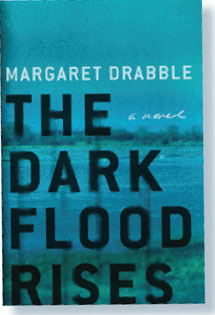
Margaret Drabble recently referenced Jonathan Swift’s Struldbrugs, the immortal folk from Gulliver’s Travels, for an article in the The Guardian on aging. Those residents of Luggnagg avoided death but not the weakening and changes that precede it. After 80, they were condemned to a cranky eternity full of infirmities and discomforts. “He might have been describing the inmates of a 21st-century care home for the elderly,” Drabble noted.
In The Dark Flood Rises, active, still-vital septuagenarian housing expert Francesca Stubbs isn’t many years behind the residents of the care facilities she inspects across England, and she knows it. “Too old to die young and too old to avoid bunions and arthritis, moles and blebs, weakening wrists, incipient but not yet treatable cataracts, and encroaching weariness.” Old age is not for sissies, said Bette Davis. Though still living an industrious life, Fran, painfully aware of what’s next, sums it up far better with language that cannot be printed here.
To call this novel a literary memento mori would be an understatement, but the observant, stoic voice of its central character—who admires one friend for facing death with style yet sniffs at her ex-husband’s indulgent decline of pills and opera—makes it a gripping one. Though not much actually happens, the masterful Drabble, age 77, meditates on the potentially morbid topics so naturally, unblinkingly, profoundly and entertainingly that you’ll laugh and sob as she considers all the different ways we face the journey into the unknown, and what makes for a good death.
The Dark Flood Rises goes on sale February 14.
The King Is Dead: The Last Will and Testament of Henry VIII
by Suzannah Lipscomb (Pegasus Books)
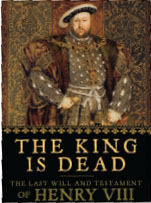
Lipscomb, the author of A Journey Through Tudor England, takes a detailed, forensic approach to dismantling the popular conspiracy theories about certain factions messing with Henry’s will. The King fought for control until his last, she argues—and even after, considering those very complicated succession instructions—in this great bit of scholarship that Tudor fans will need on their shelves.





Comments